UPDATE 12/5/17:
Rep. Lee is moving forward with his legislation plans, prohibiting the sale of games with loot boxes to minors:
Video in question:
Original Post:
Things Are Coming to a Head Quickly
All it takes is enough headlines for lawmakers to notice. They've noticed. Today I read that Belgium declares it wants loot boxes declared as gambling, and wants them banned in Europe. Before you scoff at a single example from Europe, we now have the U.S. State of Hawaii initiating an investigation into predatory practices at EA, precipitated by the headlines Battlefront II has been making.
Once enough dollars are at stake and enough people are aggravated, the hackles are up. Microtransactions, as many have pointed out, have been extremely successful. Success is a double-edged coin. With a massive flood of new revenue coming in based on, essentially, a different way of packaging and selling the same content amount going out, this should have been expected. Scrutiny.
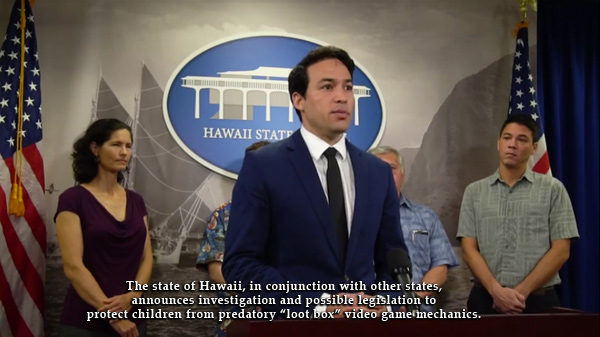
Loot boxes, as a general rule, are not gambling as currently legally defined. I ought to know, I work in the very regulated actual-gambling industry. Ratings organizations have hidden behind this distinction long enough for it to lose meaning in the general public. The distinction that defines gambling is the ability to cash out, to win real appreciable value for your bet. It is, in fact, the ability for large amounts of money to be moved both in and out of casinos that has made up of the bulk of federal regulatory activity we have dealt and complied with in the past decade-plus: regulations designed to detect and report possible money laundering.
Games have not been immune from these concerns, but I'm not educated as to whether Chinese WOW gold farms would have been an efficient and effective means of laundering money, even with a multiple-year crackdown on casino money laundering through Macau. The only loot box system that has ever presented these concerns have been those in Valve's Steam economy, which is why with the CSGO Lotto crud from earlier this year, the state of Washington's Gaming (i.e. Gambling) Commission had to issue them a cease-and-desist, to force them to enforce their own account trading API policies. This was the most comparable to real gambling loot boxes ever got, because through a complicated set of 3rd party hoops, one could cash out.
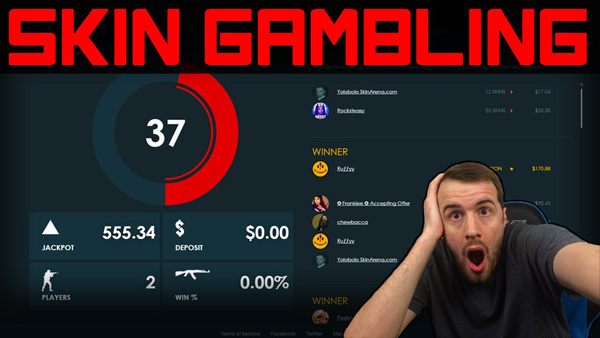
Your local government, your state government, your small country among the EU, these entities are moving to express concerns about the anti-consumer effects of loot boxes. Large federal entities will not care, becuase they are focused on money laundering, unless the local governments can make this a bellweather issue. That day is coming.
Get in Front, Define the Terms
It doesn't have to be gambling to be regulated. The last time the video game industry faced possible regulation it was over content. Seven years ago the video game industry faced a regulatory challenge, as California Senator Leland Yee helped spearhead and pass a law banning the sale of violent video games to people under 18. This case was taken all the way to the supreme court, where games were granted the status of protected First Amendment speech, protected from censorship by the government.
It was partially the industry's willingness to self-regulate that enabled this result.
This sort of regulation of content sale by governmental entities had (largely) been avoided by the movie industry via self-regulation. The MPAA was formed and movies were submitted for rating. In the 90's video games faced controversy and possibly regulation at the urging of Senator Joseph Lieberman, famously reacting on the senate floor to the (now remastered!) FMV game Night Trap. At that time, the video game industry aped the efforts of the movie industry, forming the ESA and the ESRB and developing a ratings system to inform parents of what sort of content they were buying for their kids. Please pardon me in that I am not educated as to the origins of the PEGI system, or of Australia's ratings board, etc.

I assume their gist also is: these ratings agencies arose because of a clear need. There was a need to assure both parents and lawmakers that the industry was up front. The video game industry needed to convince the world it was not trying to slip objectionable content into something ostensibly for kids. Arguably, the biggest offender in this regard in my lifetime is Steven Spielberg, who single-handedly created the PG-13 rating by showing a man's still-beating heart torn from his chest in a rated PG movie. And it turned out that Senator Yee himself contained a fair amount of obectionable content, considering he was found guilty of corruption and conspiracy in the sale of illegal firearms, but I digress...
My point is: this need has arisen once again. The need to take action before it is taken upon you. The need to convince the world you are not trying to slip predatory revenue models into games that ostensibly have a single price tag, and, again, may ostensibly be for kids.
The Real Issue is Up-Front Pricing
You can play poker right now, or your favorite actual-slot-machine-from-a-real-casino, for meaningless Space Bux, all from within data-connected Facebook, within a browser window, with no ratings board warning of any kind. You can even dump your own real money into any of these "social gaming" sites to buy said Space Bux. This has all been around for years, and nobody gives a crap.
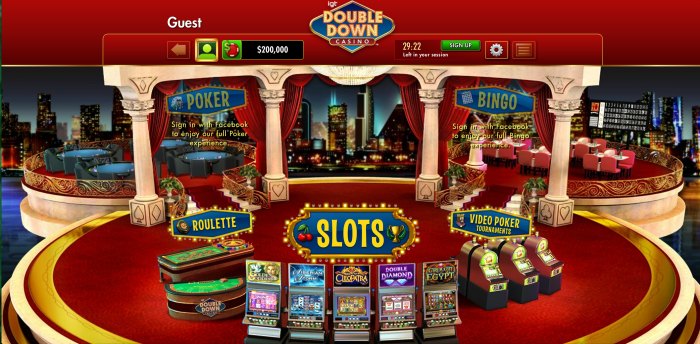
My first simulated gambling experience was Atari 2600 Casino and Atari 2600 Slot Machine, when I was like eight. I learned the games, won and lost Space Bux. No one gave a crap about simulated gambling. If anything, simulated gambling is almost the opposite of what's going on: no matter how rich you are or how much money you bring, you cannot buy the luck. You may be able to fund higher bets, take greater risks, win bigger jackpots when you hit, but every gambler stepping up to a slot machine has the same odds per spin as any other. You cannot buy an advantage.
Obviously it is the pay-to-win mechanics that were present in Star Wars: Battlefront II that has set off this firestorm of media attention, that we have been hearing of for the past few weeks. Gamers have recognized that their shooter has been horribly crossbred with a collectible card game, allowing gameplay advantages to now be at the behest of the ubiquitous loot box system. And this attempt by EA was both underhanded and deceptive. Hey, collectible cards and CCGs wear their flaws on their sleeve. They didn't Trojan Horse their way into a Star Wars branded sequel that lacked the revenue mechanics in its predecessor.

But parents and lawmakers don't care about how fair your game is, or if your microtransactions are for cosmetic items or gameplay ones--if the end result is kids are still obsessed with the revenue system and constantly asking to spend on it. Parents and lawmakers only care about the up front pricing and nature of these models.
This is evidenced by the focus of FTC regulation on the mobile industry, where the only thing anyone was concerned with was a lack of up-front pricing and the presence of controls for parent's oversight of their kids purchases of microtransactions (so far). And even at that, "Offers In-App Purchases" was a warning only added after Google was sued and settled, Apple got a class-action and settled, and Amazon got the same lawsuit from the FTC.
The ESRB and these other ratings boards can decide their future relevancy in their historical function of informing parents and consumers, admittedly with shockingly pointless results, since so many parents ignore content ratings. But they serve as protection for the industry, who can at least state that with the product clearly marked, the onus of what a child consumes and responds to is on the parents, and the industry is not trying to sneak anything into the package a parent would not want.
PEGI and ESRB have been clear that loot boxes are not gambling, and why they consider it so. But they haven't been clear as to why they don't consider them a new form of possibly-predatory business model in games that parents might want to know about, considering the number of people (gamers themselves, even, who were mostly on the same page about 1st amendment protected content in games) expressing concern about them.
So... now's the window. Now's the chance, to put something on the box and decide your label for the warning as opposed to letting it be determined for you. I have a suggestion. It may not be the best term to use, but I for one favor it as a tribute to that great work by Hideo Kojima, unfairly delisted off the face of the Earth...

Our secret wink-wink is that every game with this on the box is a Playable Teaser for the actual revenue model.
A Taste of Our Regulated World
I mentioned earlier that I work in the casino industry. People have a lot of misconceptions about how this industry works, fed by a fair amount of superstition, as well. People like to think that casino managers have little dials or buttons in the back room, directly controlling the amount of luck available to our machines at any given time. People like to believe our loyalty cards somehow convey their personal information to the slot machine logic itself, switching to "lose mode" once the patsy has been identified. In fact, nothing could be further from the truth.
There's almost nothing more secure and scrutinized in a casino than a machine's game logic. Slot/pachinko machine manufacturers have some names in common with the games industry: Konami, Sammy. Oddly a few names that have left the apparently hugely burdensome world of video games themselves: Williams, Bally... Konami? These manufacturers have to submit all their game logic for complete review and real-world testing before they can release a new product. This process can take months, and can vary from state to state, as each state may have its own review period, or specific requirements for testing. Heck, I once watched Aristocrat (an Australia-based manufacturer, with offices in NA of course) go back and forth my state's gaming division for eighteen months about a set of canned financial reports that the agency wanted tailored just so... before the manufacturer could release a version upgrade for its main back-end slot system.
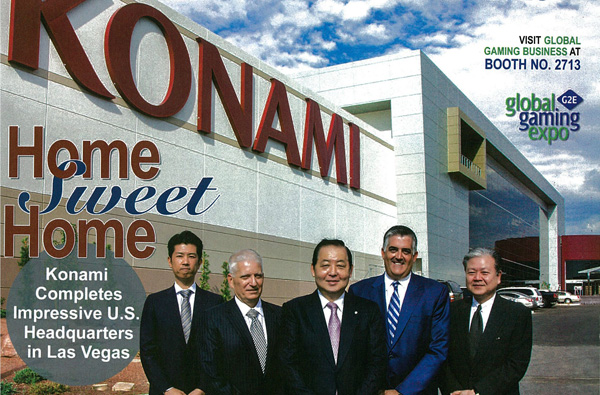
Game logic gets rejected for approval quite often, sometimes even after the fact upon further testing and investigation. At these points, casinos are called upon to remain compliant by updating all machines, which in our non-server-based jurisdiction means a physical visit and chip replacement on each one. Failure to comply by deadline (often discovered by surprise gaming agent inspection) can lead to significant fines being leveraged against the casino for running the wrong game software.
All the game logic testing goes through one place. Gaming Labs International is the name of the outfit in the U.S. They got a good gig going, and I'm not saying its easy work. Just that they have the market cornered, as regulatory agencies tend to limit access to trusted, vetted people.
Speaking of which, I am vetted and licensed. Anyone working with any gaming funds in any of these casinos, or working in casino support roles with data access, or manufacturer reps and vendors from other states who sometimes work here, have to submit for state licensing. Depending on the type of license you can pay from $200 to $1800 to have the state conduct a background check on you for any past incidences of felony, fraud, or government-owed money, and then a certain amount to renew every two years.
If you don't pass the check, you're not working in that industry, in that state. Your license can also be individually revoked for infractions such as failing to catch an underaged patron, overserving alcohol, etc.
This little taste is just the tip of the iceberg. Most publicly-traded gaming companies are more than familiar with intense regulation since Sarbanes-Oxley came into effect, but their lobbying arm, the ESRB, isn't showing enough concern, to my mind, of all the regulatory bottlenecks and other entities game makers will have to deal with should regulation of their game logic come into play. Here's a fun diversion, google and read some of the articles about the geofencing technology manufacturers have had to implement and deploy in the states that have legalized online sports betting to ensure the bets are only coming from people in that state. It's insane what they've spent to meet that requirement, even as we all know its effectiveness can never be 100 percent.
Thirty years ago, there were two states in the U.S. where gambling was legal, Nevada and New Jersey, and who thus had regulatory agencies in their state government, already with "Gaming" right in their names (since it's industry's agreed-upon euphemism for gambling). Now, nearly every state in the U.S. has a "Gaming Commission" with an associated budget and agenda.
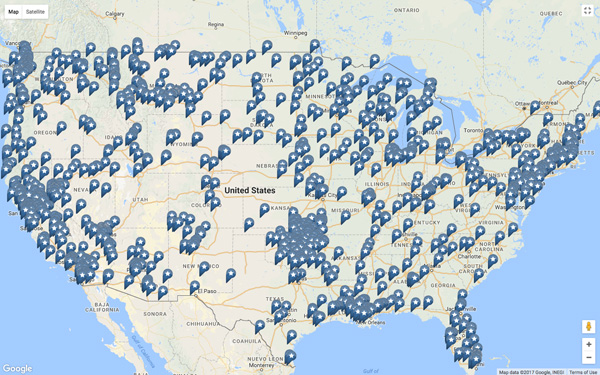
Why not do the smart thing: to clean up your own back yard and stay out of their crosshairs?
Well, Maybe, But Not Overwatch, Right?
Look, parents and lawmakers are never really going to care about pay-to-win because the value of "winning" that we perceive in our games has no actual real world value to them. Their concern is the unlocking available within the game, without regard for distinctions of cosmetic-only, and its level of impact on people outside the game. Mobile game platforms were forced to enact controls not because games became crappy pay-to-win grindfests on mobile, but because they were not upfront about their internal marketplaces, and they didn't have sufficient parental warnings and controls in place.
But even beyond this, games that have replaced their progression economies with loot box systems have also replaced a portion of their content that conveyed interaction with an economy, with interaction with an entirely new and different sort of in-game economy. Progression mechanisms that used to involve and, in effect, teach systems of earning/saving/buying upgrades and collectibles have been replaced with random number generator loot box mechanisms, with a timesink grind to achieve desired results/upgrades from those systems as a result of play. This is regardless of pay-to-win effect. The player is often now forced into a situation where unlocking desired collectibles in a game, even a full-priced one, is a choice between burning all your time on a hopeless grind, or having the real-world money to buy progress in that unlocking.

This disparity in achievable results and how they are accomplished now both reflects and reinforces a society marked by massive economic disparity. Regular people "get lucky" with reality TV show competitions or Shark Tank business ideas, and the concept of a slow achievable progression through a game, and perhaps through life itself, through steady application of labor is becoming foreign to the Rated T and under games our children are playing. The very basic concepts of work-reward, that a parent may have strong feelings about teaching, is being transformed.
Will Overwatch breed a new generation of gamblers? I don't think so. But do parents deserve to be told about the presence of paid or random progress towards a game's unlocks? I do think so.
Apparently, so do others.
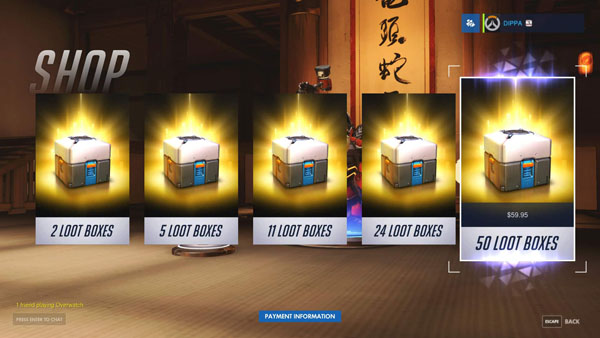
Finally, Cash Out Ain't What It Used To Be
What if you can only cash out in Bitcoin? As the walls and distinctions between real and virtual property continue to diminish, the distinction of "cash out" loses meaning. If our world is indeed headed into a crapper of environmental disaster and social unrest, I can see people's virtual worlds becoming more preferred, and their virtual possessions having more meaning to them than their meatspace things. Is not theft of data a crime? This "cash out" gambling cover is only going to last so long, and that Hawaii representative has already shown himself smart enough not to mention gambling by name but rather by way of comparison of psychological influences.
The longer the self-regulating forces hide behind the cash out distinction as the reason to ignore these developments, the more they risk being accused of secretly advocating and tolerating business practices that may are already being labelled as predatory.
*Thanks for reading this whole thing if you did, I had a lot of thoughts I compiled from various lost discussions in some other location. ;)
Rep. Lee is moving forward with his legislation plans, prohibiting the sale of games with loot boxes to minors:
The video lays out the basics of what Lee has in mind, which includes prohibiting the sale of videogames containing "gambling mechanisms" to anyone under the age of 21. That restriction would cover any situation in which players are purchasing a "percentage chance" to get an in-game item, rather than the item itself, and would apply not just to games sold at retail but also those available via digital distribution channels like Steam and GOG—a relevant point because ESRB ratings are not mandatory for digital storefronts.
Lee also expresses concern about game publishers who adjust the odds of various items dropping in loot boxes in order to take advantage of people who really want them. He acknowledges that his information is third-hand and unverified (and I've only ever heard of the opposite happening, in the form of "pity timers" that increase the odds of a good drop the longer a person goes without one), but nonetheless does a pretty good job of making it sound like an all-but-established fact.
"Once the algorithm identifies a player who's likely to keep spending money to buy that one 'unicorn thing' that they're after ... then they lower the odds and then you keep spending more," he says in the video. "It's absolutely unethical and unfair."
As a result, he's also seeking an "accountability piece" of legislation to ensure that behind-the-scenes drop-rate shenanigans doesn't happen, which would presumably require publishers to reveal loot box drop rates odds—something similar to the step taken late last year by China.
Video in question:
Original Post:
Things Are Coming to a Head Quickly
All it takes is enough headlines for lawmakers to notice. They've noticed. Today I read that Belgium declares it wants loot boxes declared as gambling, and wants them banned in Europe. Before you scoff at a single example from Europe, we now have the U.S. State of Hawaii initiating an investigation into predatory practices at EA, precipitated by the headlines Battlefront II has been making.
Once enough dollars are at stake and enough people are aggravated, the hackles are up. Microtransactions, as many have pointed out, have been extremely successful. Success is a double-edged coin. With a massive flood of new revenue coming in based on, essentially, a different way of packaging and selling the same content amount going out, this should have been expected. Scrutiny.

Loot boxes, as a general rule, are not gambling as currently legally defined. I ought to know, I work in the very regulated actual-gambling industry. Ratings organizations have hidden behind this distinction long enough for it to lose meaning in the general public. The distinction that defines gambling is the ability to cash out, to win real appreciable value for your bet. It is, in fact, the ability for large amounts of money to be moved both in and out of casinos that has made up of the bulk of federal regulatory activity we have dealt and complied with in the past decade-plus: regulations designed to detect and report possible money laundering.
Games have not been immune from these concerns, but I'm not educated as to whether Chinese WOW gold farms would have been an efficient and effective means of laundering money, even with a multiple-year crackdown on casino money laundering through Macau. The only loot box system that has ever presented these concerns have been those in Valve's Steam economy, which is why with the CSGO Lotto crud from earlier this year, the state of Washington's Gaming (i.e. Gambling) Commission had to issue them a cease-and-desist, to force them to enforce their own account trading API policies. This was the most comparable to real gambling loot boxes ever got, because through a complicated set of 3rd party hoops, one could cash out.

Your local government, your state government, your small country among the EU, these entities are moving to express concerns about the anti-consumer effects of loot boxes. Large federal entities will not care, becuase they are focused on money laundering, unless the local governments can make this a bellweather issue. That day is coming.
Get in Front, Define the Terms
It doesn't have to be gambling to be regulated. The last time the video game industry faced possible regulation it was over content. Seven years ago the video game industry faced a regulatory challenge, as California Senator Leland Yee helped spearhead and pass a law banning the sale of violent video games to people under 18. This case was taken all the way to the supreme court, where games were granted the status of protected First Amendment speech, protected from censorship by the government.
It was partially the industry's willingness to self-regulate that enabled this result.
This sort of regulation of content sale by governmental entities had (largely) been avoided by the movie industry via self-regulation. The MPAA was formed and movies were submitted for rating. In the 90's video games faced controversy and possibly regulation at the urging of Senator Joseph Lieberman, famously reacting on the senate floor to the (now remastered!) FMV game Night Trap. At that time, the video game industry aped the efforts of the movie industry, forming the ESA and the ESRB and developing a ratings system to inform parents of what sort of content they were buying for their kids. Please pardon me in that I am not educated as to the origins of the PEGI system, or of Australia's ratings board, etc.

I assume their gist also is: these ratings agencies arose because of a clear need. There was a need to assure both parents and lawmakers that the industry was up front. The video game industry needed to convince the world it was not trying to slip objectionable content into something ostensibly for kids. Arguably, the biggest offender in this regard in my lifetime is Steven Spielberg, who single-handedly created the PG-13 rating by showing a man's still-beating heart torn from his chest in a rated PG movie. And it turned out that Senator Yee himself contained a fair amount of obectionable content, considering he was found guilty of corruption and conspiracy in the sale of illegal firearms, but I digress...
My point is: this need has arisen once again. The need to take action before it is taken upon you. The need to convince the world you are not trying to slip predatory revenue models into games that ostensibly have a single price tag, and, again, may ostensibly be for kids.
The Real Issue is Up-Front Pricing
You can play poker right now, or your favorite actual-slot-machine-from-a-real-casino, for meaningless Space Bux, all from within data-connected Facebook, within a browser window, with no ratings board warning of any kind. You can even dump your own real money into any of these "social gaming" sites to buy said Space Bux. This has all been around for years, and nobody gives a crap.

My first simulated gambling experience was Atari 2600 Casino and Atari 2600 Slot Machine, when I was like eight. I learned the games, won and lost Space Bux. No one gave a crap about simulated gambling. If anything, simulated gambling is almost the opposite of what's going on: no matter how rich you are or how much money you bring, you cannot buy the luck. You may be able to fund higher bets, take greater risks, win bigger jackpots when you hit, but every gambler stepping up to a slot machine has the same odds per spin as any other. You cannot buy an advantage.
Obviously it is the pay-to-win mechanics that were present in Star Wars: Battlefront II that has set off this firestorm of media attention, that we have been hearing of for the past few weeks. Gamers have recognized that their shooter has been horribly crossbred with a collectible card game, allowing gameplay advantages to now be at the behest of the ubiquitous loot box system. And this attempt by EA was both underhanded and deceptive. Hey, collectible cards and CCGs wear their flaws on their sleeve. They didn't Trojan Horse their way into a Star Wars branded sequel that lacked the revenue mechanics in its predecessor.

But parents and lawmakers don't care about how fair your game is, or if your microtransactions are for cosmetic items or gameplay ones--if the end result is kids are still obsessed with the revenue system and constantly asking to spend on it. Parents and lawmakers only care about the up front pricing and nature of these models.
This is evidenced by the focus of FTC regulation on the mobile industry, where the only thing anyone was concerned with was a lack of up-front pricing and the presence of controls for parent's oversight of their kids purchases of microtransactions (so far). And even at that, "Offers In-App Purchases" was a warning only added after Google was sued and settled, Apple got a class-action and settled, and Amazon got the same lawsuit from the FTC.
The ESRB and these other ratings boards can decide their future relevancy in their historical function of informing parents and consumers, admittedly with shockingly pointless results, since so many parents ignore content ratings. But they serve as protection for the industry, who can at least state that with the product clearly marked, the onus of what a child consumes and responds to is on the parents, and the industry is not trying to sneak anything into the package a parent would not want.
PEGI and ESRB have been clear that loot boxes are not gambling, and why they consider it so. But they haven't been clear as to why they don't consider them a new form of possibly-predatory business model in games that parents might want to know about, considering the number of people (gamers themselves, even, who were mostly on the same page about 1st amendment protected content in games) expressing concern about them.
So... now's the window. Now's the chance, to put something on the box and decide your label for the warning as opposed to letting it be determined for you. I have a suggestion. It may not be the best term to use, but I for one favor it as a tribute to that great work by Hideo Kojima, unfairly delisted off the face of the Earth...

Our secret wink-wink is that every game with this on the box is a Playable Teaser for the actual revenue model.
A Taste of Our Regulated World
I mentioned earlier that I work in the casino industry. People have a lot of misconceptions about how this industry works, fed by a fair amount of superstition, as well. People like to think that casino managers have little dials or buttons in the back room, directly controlling the amount of luck available to our machines at any given time. People like to believe our loyalty cards somehow convey their personal information to the slot machine logic itself, switching to "lose mode" once the patsy has been identified. In fact, nothing could be further from the truth.
There's almost nothing more secure and scrutinized in a casino than a machine's game logic. Slot/pachinko machine manufacturers have some names in common with the games industry: Konami, Sammy. Oddly a few names that have left the apparently hugely burdensome world of video games themselves: Williams, Bally... Konami? These manufacturers have to submit all their game logic for complete review and real-world testing before they can release a new product. This process can take months, and can vary from state to state, as each state may have its own review period, or specific requirements for testing. Heck, I once watched Aristocrat (an Australia-based manufacturer, with offices in NA of course) go back and forth my state's gaming division for eighteen months about a set of canned financial reports that the agency wanted tailored just so... before the manufacturer could release a version upgrade for its main back-end slot system.

Game logic gets rejected for approval quite often, sometimes even after the fact upon further testing and investigation. At these points, casinos are called upon to remain compliant by updating all machines, which in our non-server-based jurisdiction means a physical visit and chip replacement on each one. Failure to comply by deadline (often discovered by surprise gaming agent inspection) can lead to significant fines being leveraged against the casino for running the wrong game software.
All the game logic testing goes through one place. Gaming Labs International is the name of the outfit in the U.S. They got a good gig going, and I'm not saying its easy work. Just that they have the market cornered, as regulatory agencies tend to limit access to trusted, vetted people.
Speaking of which, I am vetted and licensed. Anyone working with any gaming funds in any of these casinos, or working in casino support roles with data access, or manufacturer reps and vendors from other states who sometimes work here, have to submit for state licensing. Depending on the type of license you can pay from $200 to $1800 to have the state conduct a background check on you for any past incidences of felony, fraud, or government-owed money, and then a certain amount to renew every two years.
If you don't pass the check, you're not working in that industry, in that state. Your license can also be individually revoked for infractions such as failing to catch an underaged patron, overserving alcohol, etc.
This little taste is just the tip of the iceberg. Most publicly-traded gaming companies are more than familiar with intense regulation since Sarbanes-Oxley came into effect, but their lobbying arm, the ESRB, isn't showing enough concern, to my mind, of all the regulatory bottlenecks and other entities game makers will have to deal with should regulation of their game logic come into play. Here's a fun diversion, google and read some of the articles about the geofencing technology manufacturers have had to implement and deploy in the states that have legalized online sports betting to ensure the bets are only coming from people in that state. It's insane what they've spent to meet that requirement, even as we all know its effectiveness can never be 100 percent.
Thirty years ago, there were two states in the U.S. where gambling was legal, Nevada and New Jersey, and who thus had regulatory agencies in their state government, already with "Gaming" right in their names (since it's industry's agreed-upon euphemism for gambling). Now, nearly every state in the U.S. has a "Gaming Commission" with an associated budget and agenda.

Why not do the smart thing: to clean up your own back yard and stay out of their crosshairs?
Well, Maybe, But Not Overwatch, Right?
Look, parents and lawmakers are never really going to care about pay-to-win because the value of "winning" that we perceive in our games has no actual real world value to them. Their concern is the unlocking available within the game, without regard for distinctions of cosmetic-only, and its level of impact on people outside the game. Mobile game platforms were forced to enact controls not because games became crappy pay-to-win grindfests on mobile, but because they were not upfront about their internal marketplaces, and they didn't have sufficient parental warnings and controls in place.
But even beyond this, games that have replaced their progression economies with loot box systems have also replaced a portion of their content that conveyed interaction with an economy, with interaction with an entirely new and different sort of in-game economy. Progression mechanisms that used to involve and, in effect, teach systems of earning/saving/buying upgrades and collectibles have been replaced with random number generator loot box mechanisms, with a timesink grind to achieve desired results/upgrades from those systems as a result of play. This is regardless of pay-to-win effect. The player is often now forced into a situation where unlocking desired collectibles in a game, even a full-priced one, is a choice between burning all your time on a hopeless grind, or having the real-world money to buy progress in that unlocking.

This disparity in achievable results and how they are accomplished now both reflects and reinforces a society marked by massive economic disparity. Regular people "get lucky" with reality TV show competitions or Shark Tank business ideas, and the concept of a slow achievable progression through a game, and perhaps through life itself, through steady application of labor is becoming foreign to the Rated T and under games our children are playing. The very basic concepts of work-reward, that a parent may have strong feelings about teaching, is being transformed.
Will Overwatch breed a new generation of gamblers? I don't think so. But do parents deserve to be told about the presence of paid or random progress towards a game's unlocks? I do think so.
Apparently, so do others.

Finally, Cash Out Ain't What It Used To Be
What if you can only cash out in Bitcoin? As the walls and distinctions between real and virtual property continue to diminish, the distinction of "cash out" loses meaning. If our world is indeed headed into a crapper of environmental disaster and social unrest, I can see people's virtual worlds becoming more preferred, and their virtual possessions having more meaning to them than their meatspace things. Is not theft of data a crime? This "cash out" gambling cover is only going to last so long, and that Hawaii representative has already shown himself smart enough not to mention gambling by name but rather by way of comparison of psychological influences.
The longer the self-regulating forces hide behind the cash out distinction as the reason to ignore these developments, the more they risk being accused of secretly advocating and tolerating business practices that may are already being labelled as predatory.
*Thanks for reading this whole thing if you did, I had a lot of thoughts I compiled from various lost discussions in some other location. ;)
Last edited:

